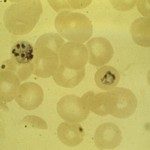Link to Pubmed [PMID] – 38494780
Link to DOI – 10.1080/17460441.2024.2324916
Expert Opin Drug Discov 2024 Mar; (): 1-12
Stroke is one of the main causes of death and disability worldwide. Nevertheless, despite the global burden of this disease, our understanding is limited and there is still a lack of highly efficient etiopathology-based treatment. It is partly due to the complexity and heterogenicity of the disease. It is estimated that around one-third of ischemic stroke is heritable, emphasizing the importance of genetic factors identification and targeting for therapeutic purposes.In this review, the authors provide an overview of the current knowledge of stroke genetics and its value in diagnostics, personalized treatment, and prognostication.As the scale of genetic testing increases and the cost decreases, integration of genetic data into clinical practice is inevitable, enabling assessing individual risk, providing personalized prognostic models and identifying new therapeutic targets and biomarkers. Although expanding stroke genetics data provides different diagnostics and treatment perspectives, there are some limitations and challenges to face. One of them is the threat of health disparities as non-European populations are underrepresented in genetic datasets. Finally, a deeper understanding of underlying mechanisms of potential targets is still lacking, delaying the application of novel therapies into routine clinical practice.

